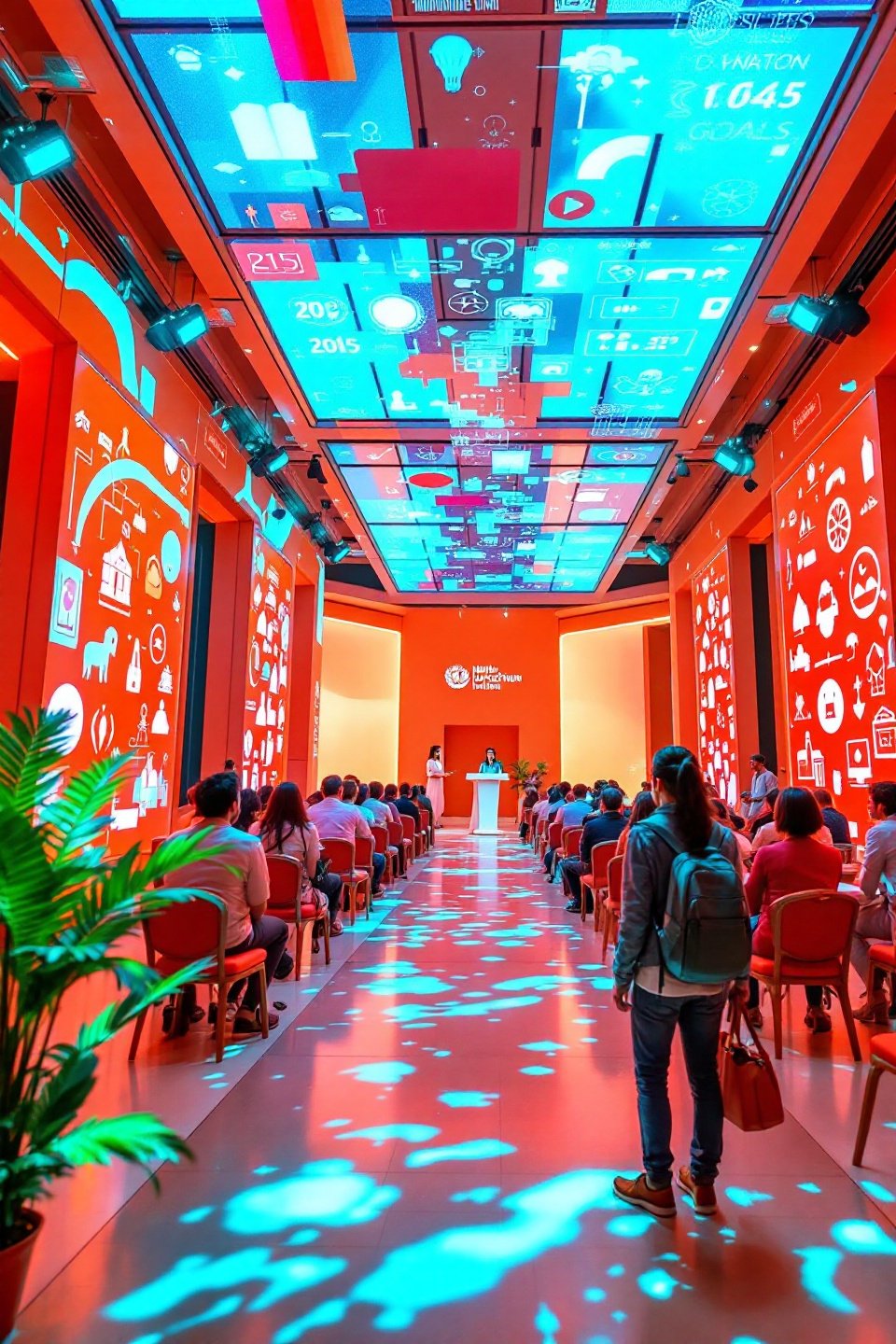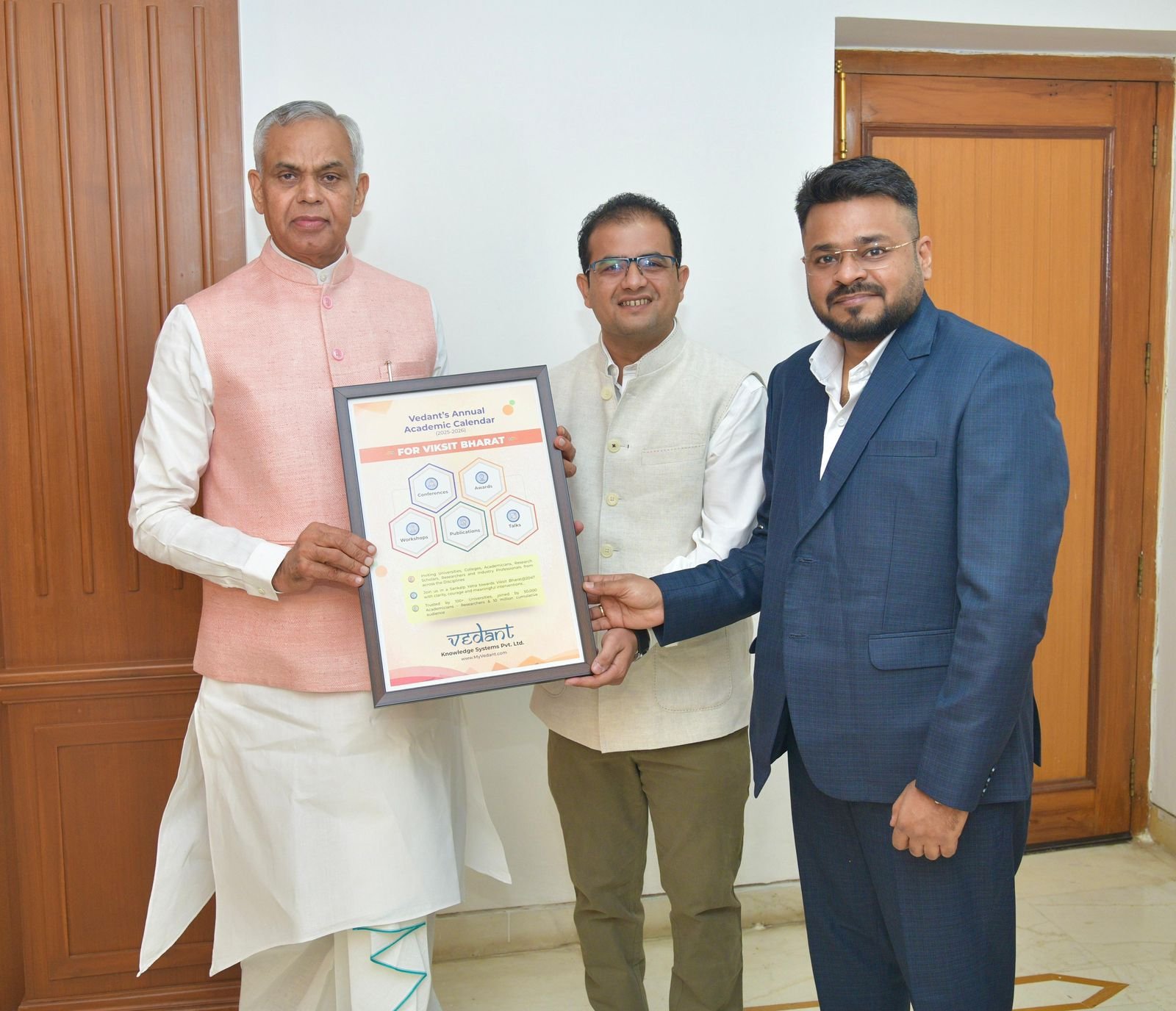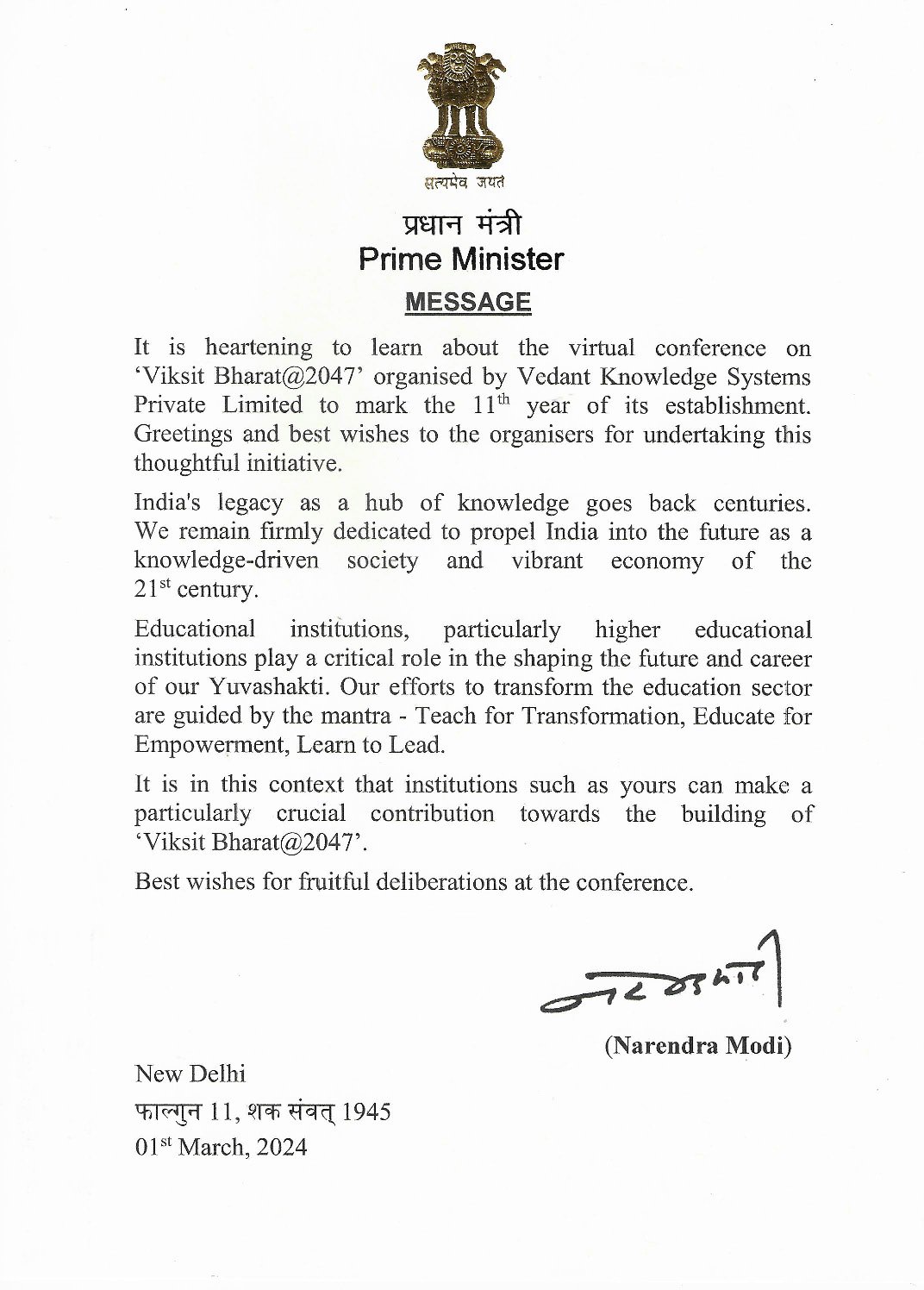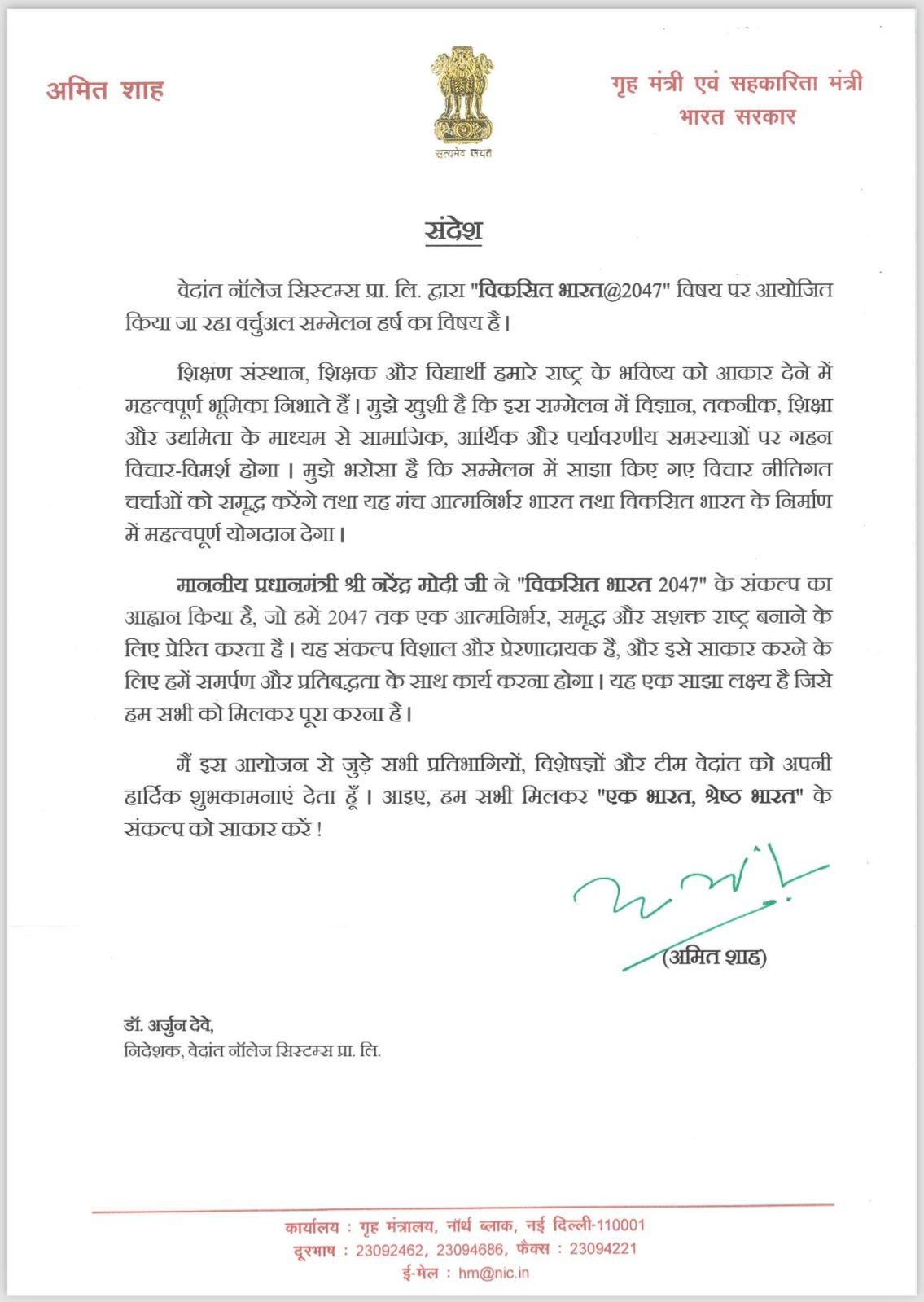• Register and get a Certificate of Participation
• Assured publication in SCOPUS, PubMed, Web of Science, Embase, and Google Scholar–indexed journals, with complete paper and author indexing—fully aligned with UGC’s suggested parameters.
• Academicians and researchers play a vital role in transforming Bharat into a Viksit Bharat.
• If you believe your research deserves to be heard, register now.


Shri Acharya Devvrat
Hon'ble Governor of Gujarat & MaharashtraWe are honored to announce that the Hon'ble Governor will be gracing our event to deliver the Chief Patron Talk. Join us for this prestigious session at the conference.
Major Themes
Tap a card to view research topics
Indic Pedagogies and the Future of Education
- Gurukul to Global: Philosophical continuity and transformation
- Indic pedagogies in teacher training, curriculum design, and value-based education
- Holistic and experiential learning inspired by Gurukul Parampara
- Mindfulness, yoga, and ethics in learning systems
- Education as Sadhana — the spiritual dimension of learning
NEP 2020, Multidisciplinary Learning & Transformation
- Implementation of NEP 2020 in higher education and governance
- Institutional restructuring and academic autonomy
- Multidisciplinary education models and experiential learning
- Outcome-based education, assessment reforms, and academic credit systems
- Governance frameworks rooted in Indic principles of Dharma and Seva
Indian Knowledge Systems (IKS) and Civilizational Wisdom
- Relevance of Vedas, Upanishads, and Smritis in knowledge creation
- Ayurveda and Yoga as sciences of sustainable living
- Decolonizing education through Bharatiya epistemology
- Integration of spiritual intelligence in professional and technical education
- Indic psychology and ancient models of wellness and personality
Science, Engineering, and Technology for Atmanirbhar Bharat
- Indigenous innovations and technology transfer in India’s knowledge economy
- Digital transformation and AI in education
- Robotics, IoT, and machine learning through ethical lenses
- Renewable energy, sustainable engineering, and eco-conscious design
- Indigenous STEM traditions: from Sulba Sutras to quantum computing
Healthcare, Ayurveda, and Well-Being
- Integrative medicine: bridging Ayurveda and allopathy
- Public health management through traditional and modern systems
- Nutritional sciences and Indian dietary systems
- Mental health through Yogic and Indic psychological models
- Preventive healthcare and digital health innovation in India
Commerce, Management, and Entrepreneurship
- Bharatiya models of wealth creation — Artha and Dharma balance
- Entrepreneurship for social good and rural transformation
- Start-up ecosystem in higher education institutions
- Management ethics and corporate Dharma
- Global competitiveness through local innovation
Social Sciences, Humanities, and Nation-Building
- Education and social justice for inclusive growth
- Reinterpreting Indian society through Indic and Gandhian lenses
- Civic education, moral leadership, and participatory governance
- Human rights and responsibilities in Indic jurisprudence
- Role of social work in community development and national integration
Sustainable Agriculture and Rural Development
- Indic agricultural wisdom and sustainable farming practices
- Water management, soil fertility, and organic cultivation
- Role of higher education in empowering farmers and rural entrepreneurs
- Ecological ethics in ancient Indian thought — Prakriti as Prana
- Climate resilience and traditional environmental technologies
Architecture, Design, and Aesthetics
- Vedic principles in architecture and sacred geometry (Vastu Shastra)
- Design thinking inspired by nature (Prakritik Shilpa)
- Performing arts as education for emotional intelligence
- Indian aesthetics (Rasa Siddhanta) and creative pedagogy
- Heritage conservation and sustainable urban planning
Law, Ethics, and Governance for Viksit Bharat
- Indic jurisprudence and comparative legal systems
- Ethical governance and Dharma-based policy frameworks
- Technology law, cybercrime, and digital rights in India
- Justice delivery through community participation and education
- Law and ethics in environmental protection and bioethics
Journalism, Mass Media, and Cultural Communication
- Media ethics and truth in the Indic tradition
- Role of media in promoting Indic thought globally
- Digital storytelling and cultural preservation
- Journalism as nation-building and narrative creation
- Public communication for social transformation and education
Library, Information Science, and Digital Knowledge
- Digital repositories for Indian Knowledge Systems
- Metadata, archiving, and preservation of ancient manuscripts
- Library networks and open-access Bharatiya knowledge platforms
- Knowledge management and AI in academic libraries
- Digital literacy for inclusive and equitable access to information
Tourism, Hospitality, and Cultural Diplomacy
- Spiritual and heritage tourism for global engagement
- Sustainable tourism practices rooted in Indic hospitality (Atithi Devo Bhava)
- Rural and eco-tourism as engines of inclusive development
- Cultural diplomacy through educational tourism
- Skill development and entrepreneurship in hospitality sectors
Sports, Yoga, and Physical Education
- Integration of Yoga and traditional sports in academic curricula
- Physical fitness as a dimension of spiritual growth
- Indic sports philosophy and ethics (Karma, Kriya, Kaushal)
- Holistic wellness programs for students and teachers
- Fitness, discipline, and Sattvik living for national progress
Arts, Literature, and Creative Expression
- Comparative study of Bhakti and Sufi literature as moral education
- Indian aesthetics and global artistic dialogue
- Literature as a medium for national awakening and peace
- Performing arts pedagogy and creative leadership
- Integration of arts into multidisciplinary education models
Research Questions
The following is a suggestive list. Your submission may be different from the list but related to the title of the conference.
Download Research QuestionsSuccessfully Published Papers to Date
Conference Participants So Far
Conference Highlights
Proud Participants
- These are the visionary academicians and researchers whose contributions will be counted in the making of Viksit Bharat @ 2047.
- These are the people who are proud to be Indian.
- The names of these participants will be published in the newspaper.
- This list of participants, along with their respective institute names, will be sent to the office of the Hon’ble Prime Minister, Shri Narendra Modi.
- Team Vedant thanks the following participants and wishes them all the very best in their future endeavours.
Fees
- You will receive a Certificate of Participation.
- Your name will be published in a Newspaper.
- You will receive a Certificate of Presentation.
Publication
SCOPUS, Web of Science, and PubMed offer both Open Access and Subscription-Based publication options.
Embase, Google Scholar, and Peer-Reviewed platforms offer Open Access publication only.
Selection Process & Support
- The name of the journal will be provided once we receive your subject, research paper title, and abstract.
- All necessary guidelines will be provided in person to help make your paper suitable for the selected journal.
Awards
All awards include a certificate, a memento, and national recognition.
Session Chair
Meet the proud Bharatiya academicians who will be guiding the Viksit Bharat@2047 Conferences as Session Chair Experts.
Session Chair ListBecome a Session Chair
Academicians are invited to participate in this conference as Session Chairs. This is a prestigious opportunity to lead academic discourse.
Session Chair RegistrationContact Us
Visit
526, Nakshatra VIII, Sadhu Vaswani Road,
Rajkot, Gujarat, India – 360005
🕙 10 AM to 8 PM (IST)
📅 Monday to Saturday
View LocationFor Institutional Support & Indexed Journal Consultation
Contact Director
🕙 10 AM to 8 PM (IST)
📅 Monday to Saturday
Call Now
Total Visitors: 5066
Today's Visitors: 2

